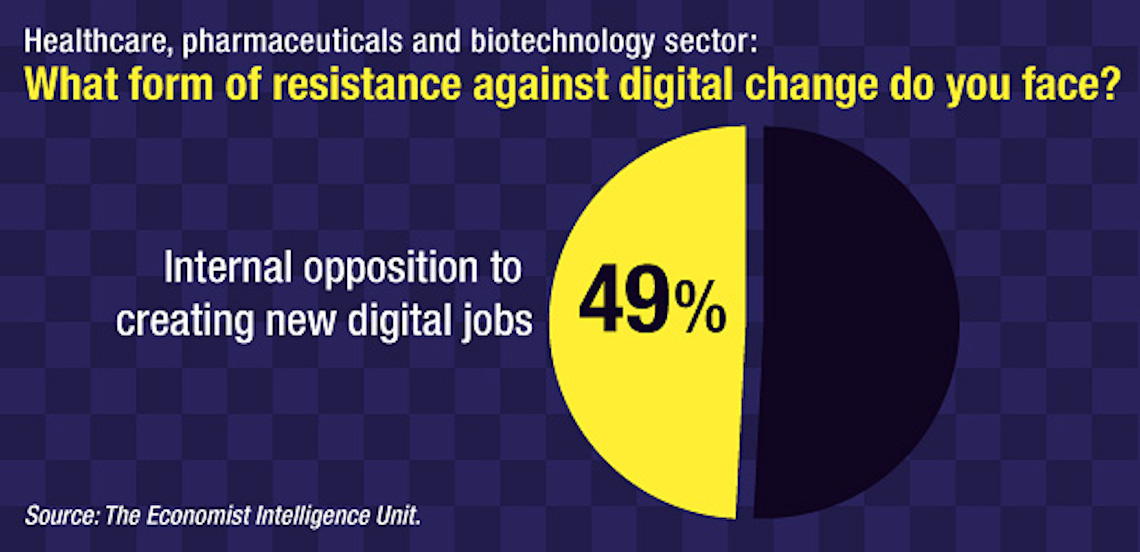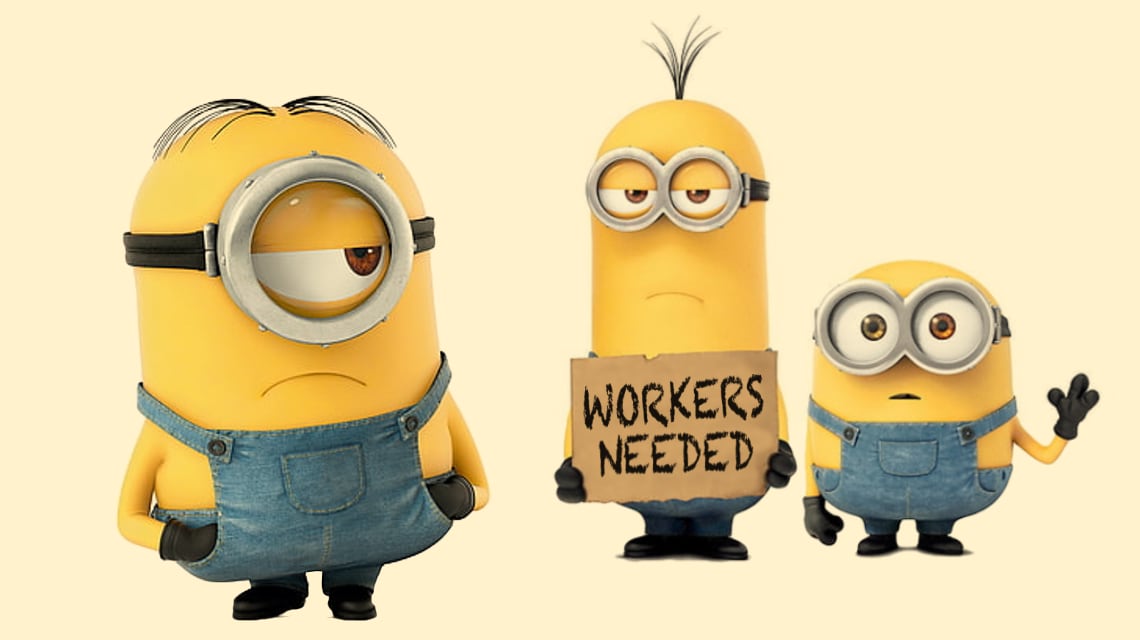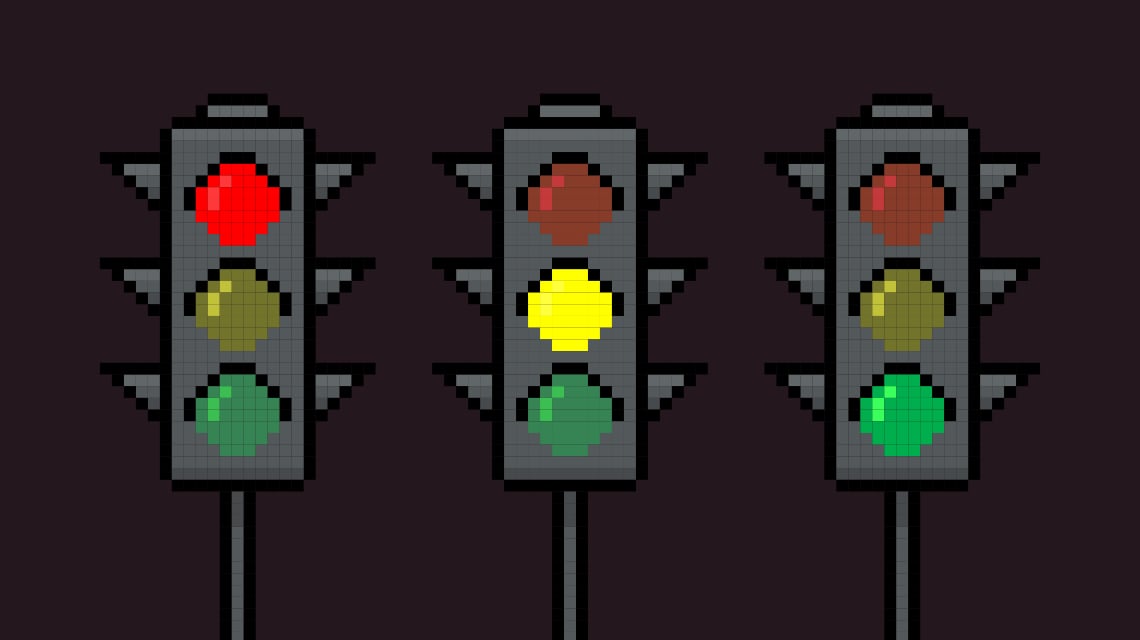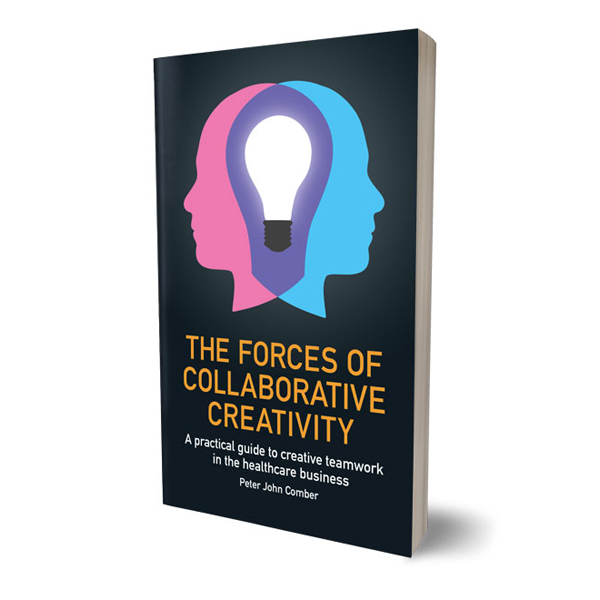The five stages of loss and overcoming resistance to change.
Sudden enforced change is a form of loss, the death of the status quo, that causes classic grief reactions; denial, anger, bargaining, depression and lastly acceptance.
In the Economist Intelligence Unit report titled “The quest for digital skills” that examines four industries, one of which is healthcare, 94% of executives cite a “moderate” or “severe” digital skills gap in their industry.
The reasons given are, predictably; insufficient supply of appropriate talent (49%) and concern about skilled digital talent being interested in working in their industry (37%).
Also and more revealing; internal opposition to creating new digital jobs (49%).
To paraphrase Shakespeare; “Some are born to change, some achieve change and others have change thrust upon them”. Today a small minority are creating and disseminating the tools for change while a vast majority, finding it thrust upon them, are resisting it with quixotic energy.
Significant change that is mandated and pushed down from the top always meets mass resistance from the base. The main reason, in my opinion, is fear. Fear of the unknown, of job loss, of no longer being in control.
I have experienced change first hand, having worked for more than thirty years in advertising, an industry that has experienced continual and incremental digital disruption and as a consultant I have helped bring change to organisations.
Each situation is unique and requires specific intervention but an overarching principal is that groups of people adopt change best when they are forced to do so but, importantly, they are given the power to make the change their own, influencing to some degree its implementation.
If we consider a sudden enforced change as a form of loss, the death of the status quo, we can apply the five stages of grief that were first proposed by Elisabeth Kübler-Ross in her 1969 book On Death and Dying: 1. Denial and isolation; 2. Anger; 3. Bargaining; 4. Depression; 5. Acceptance.
In the face of change, Denial and isolation (it won’t work here, I want nothing to do with it) together with Anger (this is wrong, it will ruin everything) are the drivers of overt resistance seen by half the respondents in the Economist report.
The next phase is bargaining, in many cases this is ignored by organisations and change is imposed without debate, this triggers depression and acceptance arrives slowly, unwillingly and only as a comprehension of the new normal.
If however the bargaining phase is embraced and tapped it can change the experience and the effect of change. By creating groups of stakeholders and influencers with different competencies and tasking them with creating together a solution to the adoption of change, they can become shapers and not victims of the future. By providing them with a framework, a series of creative exercises and a moderator who can facilitate their collaboration a functional melding of old wisdom and new methods can arise. I call it co-creation and when done correctly it makes the perception of change empowering instead of overwhelming and the effects of change more immediate and positive.
For the people who comprise an organization it is far better to achieve change than to have change thrust upon them.





